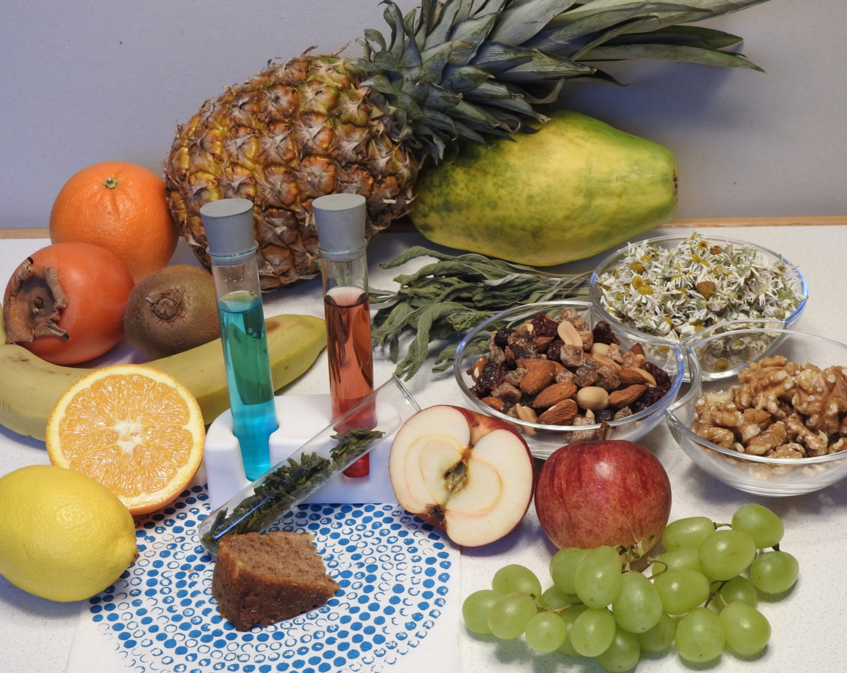Food Chemistry (Master)

© Elisabeth Varga, 2021.
The master’s programme in Food Chemistry aims at providing an academic education, spanning the areas of food chemistry, food toxicology, analytics in food chemistry and basics of food law. Graduates are qualified to independently analyse food, (food) contact materials and cosmetics with regard to their ingredients and possible contaminants, from an academic, legal and toxicological perspective. In addition, they are qualified to independently deal with analytical questions, plan and implement analyses of plant-based food and food of animal origin, as well as of possible contaminations.
Therefore, this master’s programme does not only concentrate on the theoretical basics of food chemistry, food law, physiology, toxicology and analytical chemistry, but also places a strong focus on practical work in the laboratory. This way, students learn to deal with the material they have to analyse, as well as with modern methods of analysis and analytical instruments.
Master of Science
Degree Programme Code: 066 659
4 semesters / 120 ECTS credits
NO entrance examination
Facts & Figures
- Students: n.a.
- Graduates in the last academic year: n.a.
- Number of semesters needed for graduation (median): n.a.
Data updated on: 03.12.2024
Attention
Instruction Language German
Please note that the instruction language of this programme is German. To start the degree programme, you need to hold a certificate of German proficiency on C1 level.
Admission Procedure
Information about the admission procedure
Information on Previous Studies:
In any case eligible degree programmes at the University of Vienna:
Getting started
Getting Informed
Study Programme
The master’s programmes consists of the following modules:
- Alternative group of compulsory modules/alternative compulsory module (consolidation phase)
- Compulsory modules on Food Chemistry, Food Toxicology and Applied Food Analytics
- Supplementary compulsory module
- Compulsory module “free elective module”
- Master’s thesis
- Master’s examination
The primary language of instruction is German. However, some courses may be held in English. Therefore, we recommend language proficiency in English corresponding to level C1.
Five Concepts
which you will deal with during your studies:
- Mass spectrometry
- Toxicology
- Chemical analytics
- Food law
- Microbiology and hygiene
... and many more.
Overview of the programme structure & topics
Here you find the current offer of courses for this programme to gain better insight into the topics and structure. For more information please click on the respective level.
After Graduation
Graduates have profound knowledge of food research and food safety. This enables them to pursue a career in a wide range of occupational fields:
- in public and private food inspection
- as experts for patent offices, industry and trade
- in research and development laboratories in the food and cosmetics industry
- in laboratories in toxicological research and food safety
- in analytical laboratories in the chemical industry, environmental protection and clinical chemistry
- in research at universities and other research institutions.
Graduates' Perspective on the Degree Programme
Graduates ...
- say that this degree programme receives the grade: 2.2 (good)
- rate the level of difficulty as: 3.7 (high)
→ These results are based on feedback from 14 graduates.
*You can find further assessments of the degree programme from its graduates’ perspective in the graduate survey of the master's programmes in Food and Biological Chemistry (in German).
Graduates ...
- find employment within 2 months after graduation on average.
*You can find further information on career entry and career paths in the tracking of graduates "MA Chemistry".
